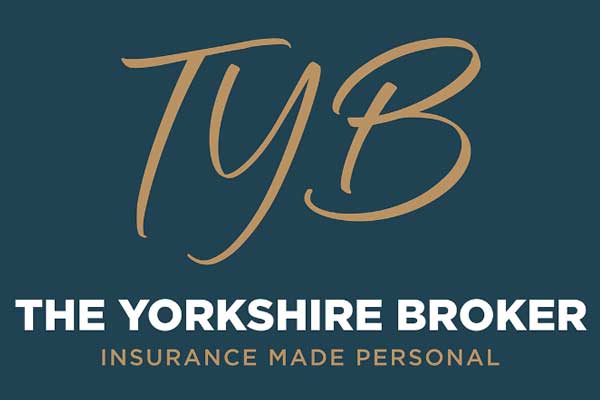Ways of working are changing. In the past two years, thanks to more time spent at home, furlough and remote working, more and more people have made the decision to set out on a new venture – by becoming freelance or setting up as a sole trader. Running your own business is no small feat. It takes a lot of courage, determination and hard work. Fortunately, when it comes to insurance, The Yorkshire Broker is here to advise.
Insurance Policies for Sole Traders & Freelancers – Are You Covered
Insurance Made Personal
What Insurance Do I Need As A Sole Trader?
You may be classed as a sole trader if you are self employed or if you have set up a business, taking sole responsibility for any losses and entitled to all profits after tax.
The cover you’re going to need will depend largely on the type of work you do. However, there are several core types of cover likely to be relevant to you as a sole trader.
Public liability insurance – which will cover you if someone makes a claim against your for personal injury or property damage.
Professional indemnity insurance – which offers protection if a client loses money due to your error or incorrect advice given by you.
Employers’ liability insurance – a legal requirement if you employ anyone, covering you if an employee makes a claim for illness or injury caused by their work.
The amount and type of cover you require will also depend on whereabouts you work, any business assets and your annual turnover.
An insurance broker can help you to understand the forms of cover that may benefit your business. It is important, therefore, to be as specific as possible about what you do and what risks you might face. For example, do you work at great heights? Or with electricity? This will affect the type of cover you need. Knowing your worst-case scenario, while unpleasant to imagine, will help ensure you get the right cover.
Look around at other businesses in your industry. What specialist cover do they have? Consider whether it might be relevant to you, too.
You may have certain contractual obligations, requiring you to take out certain types of insurance policies. Local authorities and large organisations will often demand this as part of any service agreement.
If you manufacture a product, product liability is essential cover as it can help protect you should someone get injured or their property gets damaged because of the product in question.
More and more small businesses are taking out cyber insurance these days, as the number of cyber threats grows alongside our reliance on technology to help develop our businesses. Perhaps you hold customer data that could be hacked into, or a virus could result in losing some of your work. Cyber insurance can help cover you in those instances.
What Insurance Do I Need As A Freelancer?
As a freelancer, you take sole responsibility for your work. Whether you’re a freelance management consultant, graphic designer or beauty therapist, it’s down to you to make sure you have the right cover. As with sole trader insurance, it will depend on the nature of your work.
Professional indemnity insurance is a must when you’re offering professional services or advice. For example, say a company implements your financial advice, and loses money as a result. Or you are late on a design brief and it holds up production, resulting in a loss of income. PII can give you peace of mind that, should a client make a claim due to incorrect advice or a work error, you’re covered.
Other types of insurance you might need include:
Business interruption insurance – cover if something happens that means you have to temporarily cease operating, such as property damage or equipment theft, leading to a loss of income.
– Contents insurance – cover for any tools, equipment or stock.
– Personal accident insurance – cover in case an accident or injury means you have to stop working.
– Portable equipment insurance – cover for equipment (such as devices or tools) you need to take with you that wouldn’t, therefore, be covered by contents insurance
– Legal protection insurance – cover to help with legal costs if you are sued or need to take someone to court (e.g. for refusing to pay you)
– Income protection insurance – cover in case you are ill and cannot work (as you won’t get sick pay from your employer).
Working from Home
If you work from home, you shouldn’t assume that your home contents insurance will cover anything that is for your business (such as your work laptop, or any stock you keep in the garage). Most contents policies will exclude business property or any commercial activity. Check your policy and, if your business activity isn’t covered, you may want to take out business insurance to make sure you are protected if, for example, your house floods or you are burgled.
For more advice on insurance for sole traders and freelancers, speak to an experienced insurance broker at The Yorkshire Broker. Our team members are friendly, professional and always happy to advise. Call 01924 929070 today.

